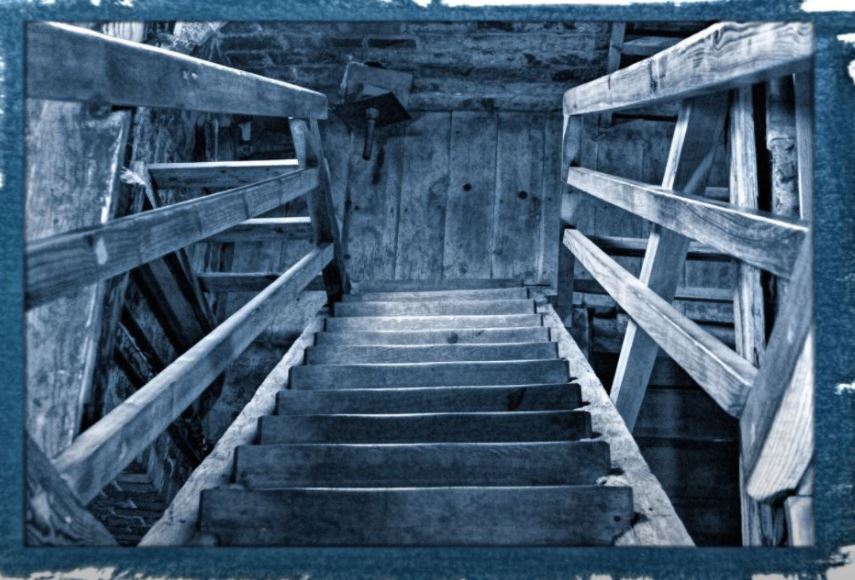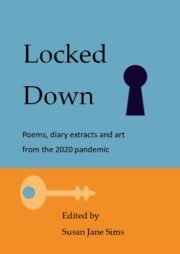• Archive of all Poetry Space showcases
Guest editor: David Norris-Kay

David Norris-Kay
David started writing poetry in 1968 and his work has appeared in many anthologies and poetry journals. He has won prizes in competitions including a £250 cash award for his poem ‘ Autumn’s Reflection’ . He writes in various poetic styles including Free Verse, syllabic, and traditional rhyme. His definitive collection ‘ From Time-Buried Years’ (Indigo Dreams Publishing 2009) is now into its second edition and third reprint.
Editor’s overview
Thank you for giving me the opportunity to edit your Spring showcase. I thoroughly enjoyed reading through the submissions, all of which are worthy of publication. Having to adhere to the rules and pick just ten poems, means having to disappoint the majority in favour of the minority. There were a few spelling mistakes, and punctuation was rather too sparse in a few of the poems, but that didn’t distract from the overall quality of the submissions, which impressed me. I was looking for originality, avoidance of cliches, good construction, and a fresh approach to the subjects written about. I found a plethora of these qualities in all the submitted poems, but especially in the ten I’ve chosen. The inclusion of two poems from two of your poets, points to the excellence of their writing, which covered all the qualities I was looking for.
(Please scroll down below the poems for David’s comments on each selected poem.)
Please note the copyright for all poems and images remains with their creators.

Chris Sims
Found Objects
She had always been a lover of found objects:
No walk along a beach or through a wood
Could be complete without a small and precious haul.
Her rooms were filled with thoughtful scatterings
Stones sculpted by time, veined with quartz
Or coloured to a shade she had not seen before
Pieces of glass, smoothed and rounded by the sea
Blue, green, sometimes – enthrallingly – red
Broken bottles whose fragments of message she could read
Shells curled or curved in intricate geometries
Some shaped like tiny vessels as by a miniature
Potter’s hands, glazed with abstract flecks and stripes
Twists of branches, weathered, gnarled, lichen-stained
Driftwood washed up by the tide, remnants of rusted metal
Clinging on, the faded lettering of some trader’s name.
They’d come and go, her casual collections
Some returned to nature, moved into the garden,
Become curious presents for certain special friends.
But there was one among those relics of a careless world,
One she’d made her own, loved and kept close by:
Inexplicably, miraculously, me.
David Prior
The Gathering
clotting to a swarm,
bees cluster, hived, honeyed,
and the flood of flowers’ goldenness,
its goodness, curdles in waxen combs
then drips
drops of rain gather & pool
in the cool of luminous, birdsung mornings,
chill to crystalline til dawn:
to ferns, to frost-flowers’
silver, not gold, drooping
looping brambles roll out purple gouts of berries
among the arches, hoops of briars…
leaves pause—still—hang, turn colour,
cut themselves adrift,
float free, fall, yellow
swallows throng & flock on wires, on branches
where knotted hazelnuts fatten from green to brown,
where conkers tighten,
brighten to a gloss
and drop…
while in the tops of lime trees
or under all five bars of country gates,
spiders garner pearls, beads
of air & rain to string
on threads’ fine silk
as milky clouds thicken,
giggles of girls along the path clutch one another
with terrible tales,
and squabbles of boys taunt each other, lifting sticky fists
all the way to school until
spilled newly out at dark, stars polish whiteness in the sky,
streak, spark, strike out light
we have not seen in summer’s paler nights:
swarm like bees to ring the turn of this slow-burning
time of gathering
Lizzie Ballagher
After Shearing
she looks frail and undefended,
older, barrel-bodied, stick-legged,
her lambs, half grown, rush her,
butt her belly, latch on, tug
dry teats, tails scribble empty air.
Pale as peeled wood, she stands
wide-legged, facing the wind, sunlight
haloes her shorn head, ears upright as blades.
She stares ahead, staggers as they root,
waits till they unlatch, then moves
downhill, stoops, crops the grass.
They run uphill and vanish out of sight.
An easy letting go, no teenage angst
parental confrontations, tears.
Jenna Plewes
From Jenna’s collection: Pull of the Earth (Indigo Dreams Publishing)
Ancient Ones
Under the standing stones,
Beech roots reach to lesser stones,
To slender bones. They know
The voices of the ancient ones
Who walked these hills—
Yet keep their counsels safe.
Pocked, pitted by wind, by water,
Sarsen stones without a sound
Absorb old mutterings
In the long-forgotten tongues
Of wandering ancestors:
Recording, reciting runes of…
The journey of bedraggled travellers
Who passed across the Kennet here.
The brush of auroch pelts against their sides.
The chip & hack of antler tools
At the raising up of ramparts for a chieftain. The swell
Of chalk & mud. The spill of blood.
Sleepless guardians, now, they are,
Greywethers for grass-grinding sheep,
For mumbling cattle (slow & sloe-eyed).
Witnesses they are to the distant calls of children,
To footfalls of unremembered families—
Clans long cloaked in greedy darkness…
But witnesses also
To the rustling return
Of brightness:
To gold leaves, green leaves
Hung on beeches, or on birch trees—
And to the blaze of summer days.
Piercing downland haze, heads above the mist,
Stones sing to hail the sun again
And with the semitones of hill & wind,
In languages of the ancient ones,
They thrum & murmur:
With scarce a sound they lift the crackling, lilting light.
Listen! These ancient ones,
These stones, will long outlive us all:
Our wanderings & our walkings.
Hush. Hush! Under clouds
They are humming the songs
Of travellers over the land.
Lizzie Ballagher
Roses in a time of war.
There are three blooms left on the bush,
Pale, polluted, near the end of life,
Spring’s late contaminate of summer green;
All the rest have long since passed.
These deadheads bring transubstantiation,
Heading the new wood twigs with death.
What do the three blooms mean?
Like soldiers drawing breath
On our behalf, our pale, white nation,
They are polluted, might be gassed,
Might draw the death’s head through a life.
I might prune them, intervene.
All around there falls the hush
Of our complicit silence in this last
Of summers, endless with the bloom of life.
No pruning, no examination,
No axe laid at the Shibboleth –
What do the soldiers mean?
At home I garden, try to save the rose.
Too long neglected, it is wilful, resists my knife.
Then one, two, three, the blooms fall. Not worth salvation
They join the deadheads; the pruned wood gasps
Beneath the axe-head, welcomes the death
That comes as sudden as the rush
Of a military machine.
Michael Docker
A Child, Writing
I watch you find words and write
chew your pencil, frown
and listen to your thoughts,
net them like butterflies
to scatter down bright and
pattern-dashed on the page.
Your spelling is yours.
Following Shakespeare, the words
serve your voice not a dictionary.
When you read out-loud
your shy voice skims the air,
my ears strain to catch your story.
If your darker demons break water
do not fear their inky-splashes.
I will listen and sit by your side
until your monsters drain of power
and decompose. Washed in
fresh waves you will swim free.
Ceinwen Haydon
Labyrinth
I set my foot upon the path
lay down the baggage of the years
accumulated dross
and cupboard skeletons
shed judgements preconceptions
questioning analysis
Do I seek a mystical experience
with each slow convoluted step
or respond simply to an invitation
to expect the unexpected
feeling the grass cool between
my bare earth connected toes
I bear my gratitude cautiously
unsteady but determined
to reach the centre
release my fears and tears
within the heart of prayer
that may be there
lightly I retrace my steps
unburdened in some sense
I cannot fathom
beguiled into believing
in miracles
Jo O’Farrell
Drawing a Pair of Hands
Low evening light
strips away flesh
outlines bones
the thin covering
pleated between fingers
knuckles pushing through skin
like a mountain range.
Hands that gripped
the ropes of childhood
swung to the sun and back
pegged love’s fresh linen
in a dancing wind
lie still now, thumbprints
whorled with a maze of memories.
Jenna Plewes
I lost my name
I dreamt I lost something,
not a wallet or a passport,
not an identity or a dream,
just my name;
it fell off like a loose shawl.
lay on the ground ,
not needing me.
I will never know what happened next
dreams are like that
but there was nothing strange
about the next day
except maybe a spring in my steps.
I wore my name like a outer casing.
As I grew I sensed a cracking over my back.
My name was splitting
It opened out like a shell
and fell on to the ground behind me.
I was naked and nameless,
ready to develop a new name.
A new name ~ did that imply a new identity ?
Was my name the person everyone knew?
I touched my raw nakedness
I held my exposed limbs
I measured my overworking brain
and counted the pulses of my heart
and knew at once the answer to that question.
The swirls of my footprints were familiar;
the soar of harmony bore the same imprint;
the pounding rythms said far more
than the letters of my name.
Those long-held letters, my tired coat,
my baby skin, that sound, so often called,
left me and I was still me;
I was perhaps even more me.
I could walk through the woods
race with the wind,
sing to the tree tops
grasp the passing days
feast on the minutes
and wonder which name to choose;
a name that spellt freedom
a name to put on like new shoes
closing my eyes with the pleasure
of the leather smell
a name that did not define my shape
but I could shed or reshape.
I could change my shoes and
make a new imprint in the mud
as my song rose to new heights
and told of new possibilities.
Judy Dinnen
It felt like flowers
High summer,
a tartan rug
strawberries bought
from a market stall
wine cooled
in the languid stream,
Thank God
for the invention
of screwtops,
he said, pouring
white wine
into plastic tumblers.
Picnic over
we sprawled
barely breathing
beneath leaf-heavy
trees, mapping
the sense
of one another
lingering over
this one final
precious hour.
I closed my eyes
to white-hot heat.
I wore a long cotton
skirt, rucked up
to my thighs,
he a shirt unbuttoned
to the waist. We relived
our four nights
in one bed, shared
conversations to last
a lifetime
His fingers explored
my limbs, my hair,
my exhausted face.
It felt like flowers.
Moira Andrew
Editor’s comments
FOUND OBJECTS: This is a love poem: The love of collecting. The love of objects found, and love for the poet. An unusual angle on the subject with the last stanza putting everything into perspective.
THE GATHERING: Expert use of language, with a surprise on every line. Like a magnifying glass held close to nature, and full of original phraseology. A great poem.
AFTER SHEARING: To the point. Superbly descriptive, with great imagery: ‘Tails scribble empty air’. ‘ears upright as blades’. A real fragment of farming life.
ANCIENT ONES: This poet hypnotises with fresh originality. There’s nothing wasted here. Every word counts, hits hard, and leaps from the page to delight the reader.
ROSES IN TIME OF WAR: An unsentimental poem, brutal, yet with contrasting peaceful moments. An accurate portrayal of war’s futility.
A CHILD WRITING: This appealed to me because of its understated beauty, and the adult’s gentle empathy for the child’s actions.
LABYRINTH: To me, this is life’s journey described in four stanzas. I love the lines:
‘feeling the grass cool between/my bare earth-connected toes’.
DRAWING A PAIR OF HANDS: The emotion generated in these two stanzas made me cry. A controlled poem, yet full of forceful pathos.
I LOST MY NAME: A breathtaking search for identity using a stream of consciousness technique that carries the reader on an ever-surprising journey. A captivating poem.
IT FELT LIKE FLOWERS: Superbly sensuous, with the first verse setting the scene; the second hinting at passion, and the third depicting gentle touching. The flower metaphor is very apt.
David Norris-Kay
Please note that David chose the poems anonymously. The order they appear in the showcase does not reflect any order of preference.







